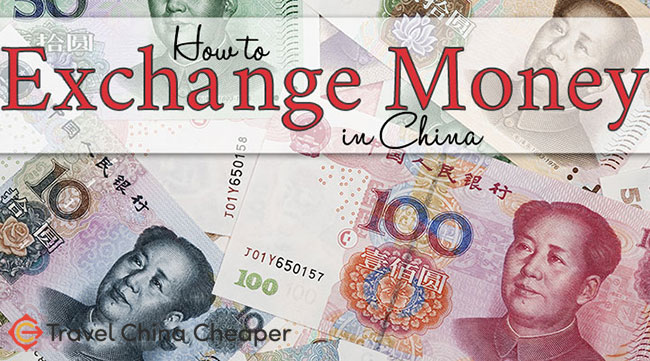What Are The Major Differences Between The Local Rates And Online Prices?
In today's global economy, knowing the distinctions between online and local currency exchange rates is essential for anyone engaged in business, travel, or investment activities. Local rates refer to exchange rates provided by currency exchange facilities in physical form or banks, as well as ATMs in your area or at your destination. Online rates are rates that digital platforms offer for conversion of currency. They can be very different, impacting how much you pay to exchange money as well as the yields you get from your investment. If you are able to fully comprehend the nuances of local versus online rates, you can make better informed decisions that will save you money and optimize your financial performance. Here are the top 10 specific guidelines for navigating local and online rates efficiently.
1. Different Rates and Their Differences
The local exchange rate may be very different from the online rates. It is because of various factors such as overhead cost, market conditions, and demand. Local exchanges can have higher charges and lesser favorable rates due to operational cost. Online platforms provide lower overheads that often result in lower rates. Knowing the differences will help you choose the best solution to meet your exchange needs.
2. Find rates before you convert the currency
Compare online and local rates prior to exchanging currency. You can check the rates of currencies in real time by using reputable websites and currency converters. Check the online exchange rate with that of local currency booths and banks if you are planning to travel abroad. This comparison can help you identify the most cost-effective option and save money.
3. Utilize Online Currency Exchange Platforms
– Online currency exchange platforms like Wise (formerly TransferWise) and Revolut generally offer better competitive rates and lower fees compared to local banks and exchange kiosks. These platforms usually offer live exchange rates and transparency about the fees. Using these services ensures that you get the most favorable rate when converting currencies.
4. Be aware of the possibility of dynamic currency conversion (DCC).
If you are buying something from overseas, you may get the option to pay using your home currency via Dynamic Conversion. Although it is a convenient alternative, it's usually associated with unfavorable conversion rates and fees. Always opt to pay in the local currency in order to avoid the high expenses that are associated with DCC and to ensure that you profit from better rates.
5. Take into consideration the convenience vs. Consider the Cost
When choosing between local and online rates consider the convenience versus the expenses involved. Local exchanges might provide quick access to cash while you travel. Exchanges online can provide higher rates than local exchanges, but you may need to open an account and wait for the funds. Determine which option best suits your requirements by looking at your travel plans or transactions.
6. Track the rate of exchange trends
Keep track of the rate of exchange to make informed decisions on the best time to convert currencies. Online platforms often provide historical data and analysis tools to monitor changes in exchange rates. Understanding market trends can help you to better time currency exchanges to benefit from the most favorable rates.
7. Examine ATM fees and limits for local withdrawals.
– Be aware that local withdrawals can be subject to charges. Different banks charge charges for international transfers and ATMs might have their own restrictions on withdrawals. If you research local ATMs, you can ensure that you're receiving the best rates and charges.
8. Exchange services for currency with no fees are available.
Some banks and online platforms offer free currency exchange services for account holders. This is especially helpful to business and individuals who work with foreign currency on a regular basis. Consider opening an exchange account to get more favorable rates and lower fees.
9. Consult with Financial Experts for Large Transactions
If you're dealing with huge quantities of money or a complex exchange rate, the guidance of financial experts is invaluable. Experts in currency are knowledgeable about the best methods for managing the local rate and rates online. This is especially important for businesses engaging in international trade, or for investors looking to optimize their exposure to foreign exchange.
10. Plan Ahead Currency Needs
If you're planning to travel or conduct business, preparing in advance for your currency requirements will save time as well as cash. Think about how much cash is required for your trip and the most efficient method to exchange that money. If the local exchange rate isn't optimal, consider converting your cash online before you go. You'll receive better rates and you won't lose any money.
These specific tips will allow you to better understand the intricacies of the exchange of currency. This is true whether you're taking a business excursion, enjoying a vacation or protecting your investments. Understanding the advantages of and drawbacks of each choice can help you make better informed financial choices. This can eventually save you money as well as improve your overall financial strategy. Take a look at the best USD to AUD recommendations for more examples including colombian peso to dollar, aed to usd, dollar to won, usd to peso, pound to dollar, mexican peso to usd, cad to usd, us dollar to pkr, usd to inr, baht to us dollar and more.

Top 10 Tips On Destination Currency And Currency Exchange Rates
Understanding destination currency is essential for anyone who wants to travel abroad, do international business, or invest on foreign markets. The destination currency is the currency used in the country you are in or dealing with, and it can influence your financial choices. Variations in exchange rates, conversion costs as well as the general economic climate can impact the amount you pay for traveling, as well as how profitable your business operations and investments are. You can make better financial decisions and optimize your strategies by familiarizing yourself the destination currency. The top ten tips on how to handle the currency at destination are given below.
1. Before you leave, do some research on the local currency.
Before visiting an unfamiliar country, you should research the currency. Understand its value relative to the currency of your home country and become familiar with the different denominations of currency. This will allow you to better manage your money and avoid overpaying. Websites such as XE.com provide real-time information and historical exchange rates to help you determine the worth of your money in foreign currency.
2. Verify the exchange rates before you depart
Exchange rates change significantly as time passes, and keeping track of these changes can help you determine the best time to exchange your cash. Set up alerts to inform you when exchange rates are in a favorable position with the help of tools and apps for tracking currency. If you find that your currency has been declining over time, it is beneficial to convert money earlier in order to boost your buying power.
3. Currency Conversion Costs – What to Consider
Banks, currency exchange services and ATMs may charge a variety of costs for currency exchange. Take note of expenses that are associated with changing your currency of origin to the currency of your destination and these costs could eat up your budget. Review rates from a variety of companies and look into online platforms that provide low exchange rates and less fees for conversion of currency.
4. Utilize the local currency when making transactions
– When making purchases abroad make sure to pay with the local currency, not the currency you use at home. When you use your home currency, it is often subject to dynamic currency conversions (DCC) which can result in higher fees and unfavorable exchange rates. If you pay using local currency, then you'll be able to enjoy lower exchange rates and will save money.
5. Prepare your cash needs in advance
Although many countries accept debit and credit cards, it's important to carry cash in case of small expenses such as tips or locations where credit cards aren't accepted. Check out the withdrawal limits for cash and charges that are associated with ATMs used abroad and think about taking a larger sum at once to minimize the transaction costs. A local currency can be a fantastic option to improve your traveling experience.
6. Understanding Local Payment Preferences
Different countries have their own preferences when it comes to payment methods. Cash might be the preferred method of payment in certain places while digital payments and credit card use is more prevalent. To learn about the most popular payment methods, study the payment practices of your area. This will help you plan payment methods and ensure you are equipped to make transactions smoothly.
7. Be aware of currency risk for businesses
If you do business in a different country, bear in mind the risks of fluctuations in currency. A sudden change in exchange rate of the foreign currency can affect profits margins and the overall performance of your company. You should consider using strategies for hedging including forward contracts to ensure that exchange rates are fixed to protect future transactions from the risk of losses resulting from fluctuations in currency.
8. Track your spending
– Tracking your spending in the destination currency is essential for staying within your budget when traveling. Keep track of your expenditure using budgeting apps or keeping a thorough record of all expenses. You'll be able monitor how much you spend in the local currency and prevent spending too much.
9. Financial Regulations – Become educated
Every country has its own regulations concerning cash transactions, currency exchange, and reporting requirements. Make sure you are familiar before traveling or conducting any business with these regulations. Some countries may restrict the amount of money you are allowed to bring out, whereas others may require transactions that are large to be reported. It is essential to stay well-informed about these rules to be able to navigate the rules without difficulty.
10. Consult with experts in currency for Investments
Consider consulting financial experts and currency experts who specialize in international investments when you're tracking the foreign markets for investments. They can provide valuable insights into the effect that the fluctuations in currencies will impact your investments and they can assist you in devising strategies to minimize the risk of currency fluctuations. Their experience can be helpful in navigating the complexity of destination currencies, and improving your financial performance.
Following these detailed tips to manage your currency at destination will help you navigate the complexities involved in traveling conducting business, as well as monitoring your investments. Understanding the significance and advantages of currency at destination will allow you to make better financial choices in alignment with your goals. This will enhance your overall experience and your financial strategy. Take a look at the top https://prazskamincovna.sk/czkeur/ for blog tips including usd to cop, usd mxn, dollar to inr, usd to colombian peso, usd to colombian peso, dollar to mexican peso, usd to colombian peso, convert pounds to dollars, usd to euro exchange rate, cop to usd and more.

